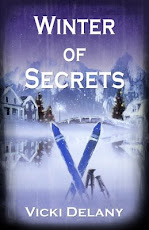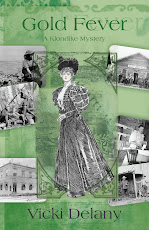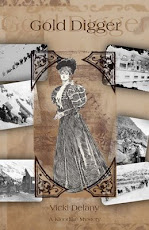American history sometimes represents the Loyalists as a
small handful of rich reactionaries determined to stand against the tide of
freedom in protection of their own selfish interests.
History, as we often forget, is far more nuanced. In fact, sources I have read say that a good
1/3 of the residents of the American colonies were not in favour of
independence. Only a few years prior to
1776 almost no one in the colony, including those who became the leading “patriots”,
were even arguing for independence, but for a slightly fairer tax system. It can be argued, and often has, that the revolution
could easily have been prevented if the British had merely bent a little rather
than remaining firmly intransigent. See:
The March
of Folly by Barbara Tuchman. (Highly
recommended - one of the books that has had the most influence on my political
thought.)
 |
| Tarred and Feathered |
Many Loyalists simply thought that there was no reason to go
to war over a tax dispute. Many agreed
with aims of eventually achieving some degree of independence, but thought that
Treason was not a good way to begin a county. Many were appalled at the actions of the mob –
outright ‘confiscation of property’ aka theft, beating and killing supposed opponents
– and thought no good could come of it. (In the famous quote attributed to
Mather Byles, Boston Clergyman, “which is
better – to be ruled by one tyrant three thousand miles away, or by three thousand
tyrants not a mile away?” ) Many simply didn’t want to take sides, and found
themselves being forced to when their homes were torched and their property
taken.
I was surprised to learn what firm Loyalists many Scots
were. One would assume that having fought
so hard against the British in 1745 they would be on the anti-British side.
Nope. A lot of Scots who’d
come to America after Culloden were Loyalists. They feared what rebellion
could do. One of Scotland’s greatest heroines, Flora McDonald, saviour
of Bonnie Prince Charlie after Culloden, moved to America when she was released
from prison, and was a staunch Loyalist. She returned to Skye via Canada
after the American Revolution where she remained until she died.
According to a source I read, the Jacobites did not consider themselves to be
‘rebels’ in any way. They supported what they considered to be the true King of
Scotland. Thus were not inclined to support rebellion in America.
 |
| Flora McDonald |
The Loyalist characters in More
than Sorrow are Hamish and Maggie Macgregor, as I wanted to pay homage
to those tough Scotsmen and women.
The Loyalists were an incredibly mixed bag, and next week I’ll
try to talk a bit more about the type of people they were.
Caveat: I am not a historian and
I am not an expert on this period. All
my sources come from reading other people’s work. If I am wrong, please feel free to let me
know. I’d also appreciate hearing from
those who know far more about the Loyalists that I do.
Pre-order: More
than Sorrow is now available for pre-order. Books and Company in Picton, and Greenleys in
Bellville are taking orders. Also at Amazon.ca, Amazon.com, Chapters/Indigo.













No comments:
Post a Comment